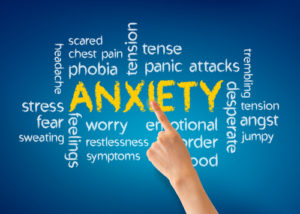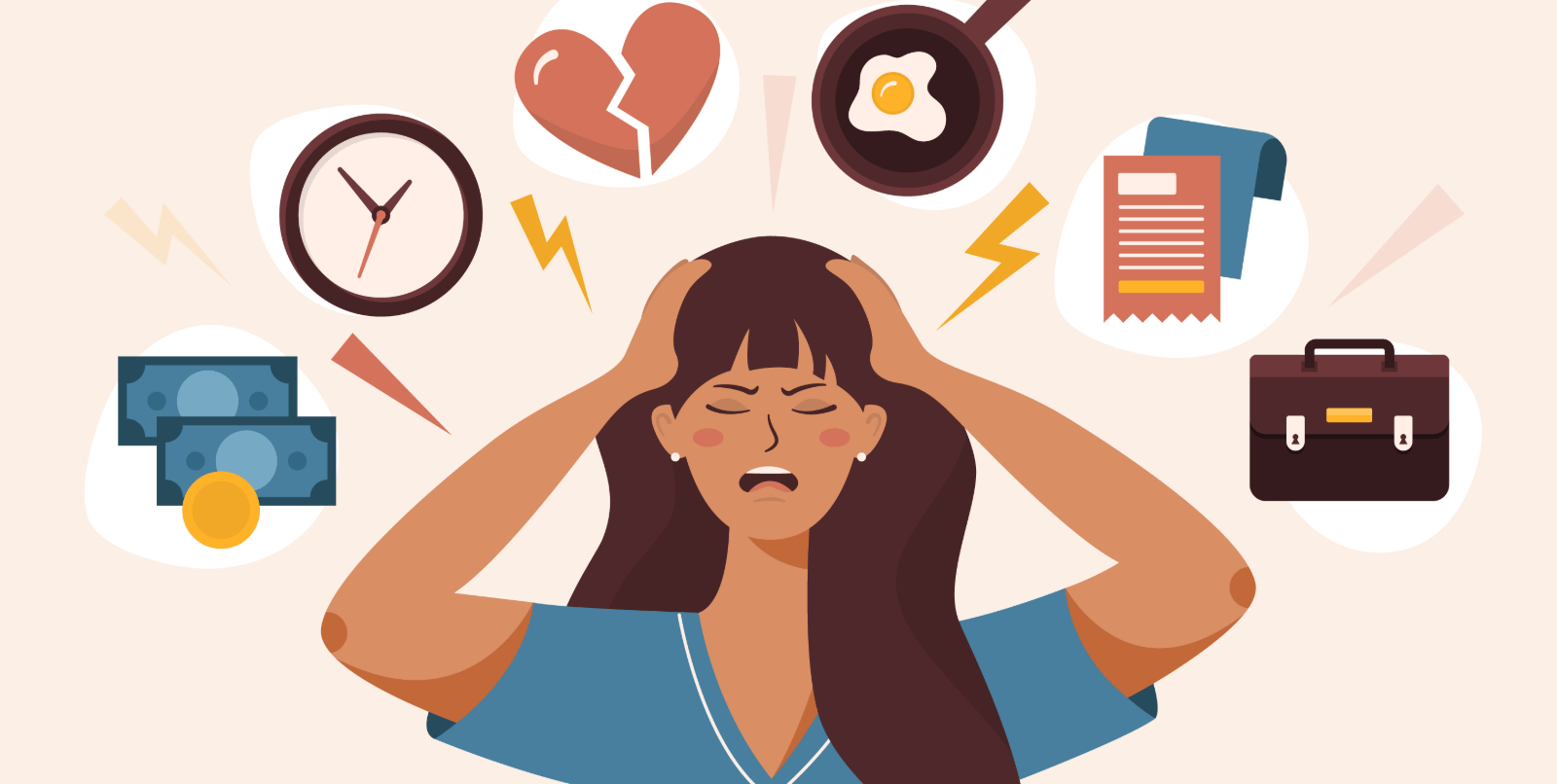Anxiety is a common and often debilitating disorder, characterized by feelings of tension, fear, and worry. In some cases, stress can lead to episodes of panic or anxiety that feel overwhelming. While there is no cure for anxiety, there are many ways to manage it and improve your quality of life. Learn about the different causes of anxiety attacks in this article and find out which strategies work best for you.
What are Anxiety Attacks?

Anxiety attacks are brief, intense episodes of anxiety that can come without warning. They can vary in severity, from lightheadedness or tingling to full-blown panic, and can interfere with normal activities.
The best way to manage anxiety is to identify the root cause and take steps to address it. Here are some different types of anxiety attacks:
1) Panic attack: A panic attack is an intense experience of fear or terror that can come on suddenly and without warning. Symptoms include racing heart, shaking, sensations of shortness of breath or chest pain, and a strong feeling of dread or terror. You may feel like you’re about to die or go crazy. Panic attacks usually last for 10 minutes or less and usually pass after a few minutes. However, some people have them for hours or days.
2) Phobia: A phobia is an irrational fear that causes severe disruption in daily life. Common phobias include the fear of dogs, snakes, heights, spiders, and thunderstorms. People with phobias often have panic attacks along with intense fear of the phobia object.
3) Social anxiety disorder: Social anxiety disorder is a serious condition that affects how people interact with others. People with a social anxiety disorder may feel shy, tense, or scared around other people. They may avoid social situations or feel uncomfortable in groups. Social anxiety can lead to job loss, reduced productivity, and relationship problems.
4) Generalized anxiety disorder: Generalized anxiety disorder is a long-term condition that causes intense anxiety and worries in many areas of life. People with a generalized anxiety disorder may have trouble maintaining a routine, be extremely worried about everyday events, or experience numerous physical symptoms (like headache, muscle tension, and dizziness).
Different Causes of Anxiety Attacks

Anxiety attacks can have many different causes. Some people experience anxiety attacks due to a general feeling of stress, while others may experience an anxiety attack as a result of an event or situation that has triggered their anxiety. Here are some of the most common causes of anxiety attacks.
1) General stress: One of the most common causes of anxiety is general stress. Too much stress can lead to an anxiety attack. If you’re experiencing a lot of stress in your life, there’s a good chance that you’ll experience at least one anxiety attack in a month.
2) Event-related: An event-related cause of an anxiety attack is when something specific triggers your anxiety. For example, if you’re anxious about flying, then a plane crashing might be enough to trigger an attack. Or, if you’re really afraid of dogs, then being around one might set off an attack.
3) Stress from mental health conditions: Anxiety can often be linked with mental health conditions, such as depression or bipolar disorder. If you have any mental health conditions, it’s important to talk to your doctor about how to manage your anxiety.
4) Substance abuse: A lot of people who experience anxiety also have a history of abusing substances. This can include alcohol, marijuana, or other drugs. If you’re struggling with an addiction to any kind of substance, it’s important to get help.
5) Genetics: Some people are just more likely to experience anxiety attacks. It may be something that you’re born with, or it may be something that you develop over time as you go through your life.
6) Medical conditions: Some medical conditions, such as epilepsy or hypothyroidism, can lead to anxiety. If you’re experiencing significant anxiety due to a medical condition, it’s important to talk to your doctor about what you can do to manage the condition.
7) Poor diet: If you have an unhealthy diet, that can lead to several health problems, including anxiety. Eating a balanced and healthy diet is important for overall well-being, and it can also help to manage anxiety.
8) Poor sleep: If you’re not getting enough sleep, that can lead to several problems, including anxiety. Furthermore, People who don’t get enough sleep often have trouble managing their emotions, which can lead to anxiety attacks.
9) Physical health conditions: If you have any physical health conditions, such as diabetes or high blood pressure, that can also lead to anxiety. If you’re experiencing significant anxiety due to a physical health condition, it’s important to talk to your doctor about what you can do to manage the condition.
10) Medication: Some medications, such as antidepressants, can cause anxiety. If you’re taking medication for a mental health condition, it’s important to talk to your doctor about the possible side effects of that medication.
11) Biological factors: Several biological factors can lead to anxiety, including genetics and hormones. Some people are just more prone to anxiety, and there’s not necessarily anything that you can do about it.
12) Trauma: If you’ve experienced trauma, that can lead to an anxiety attack. Trauma can include any kind of emotional or physical abuse. If you’re experiencing significant anxiety due to trauma, it’s important to talk to your doctor about what you can do to manage the condition.
13) Psychological factors: Psychological factors can play a role in the development of anxiety. Some people are just more prone to anxiety, and there’s not necessarily anything that you can do about it. There may be many different things that can contribute to the development of anxiety, and it can be difficult to pinpoint what’s responsible.
Conclusion
Anxiety is a common condition that affects millions of people around the world. It can be debilitating, and it’s not always easy to determine what might trigger an anxiety attack. However, by understanding different anxiety attack causes, you can start to address the underlying issues. These are what are causing your symptoms in the first place. Keep in mind that not all attacks will have a specific cause, and there isn’t necessarily one solution that works for everyone. However, by learning more about your triggers and how to deal with them, you’ll be on your way to managing anxiety effectively.
Hope this article was of help to you! If you are suffering from anxiety, you may seek help from Therapy Mantra. We have a team of highly trained and experienced therapists who can provide you with the tools and skills necessary for overcoming anxiety. Contact us today to schedule an online therapy or download our free Android or iOS app for more information.


